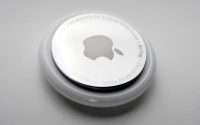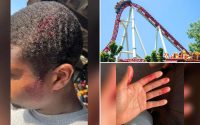‘Unattractive individuals’ more likely to wear masks: Study
In a post-COVID-19 world, people who perceive themselves as less attractive than others are more likely to keep wearing masks when they’re highly motivated to make a good impression.
That’s according to a recent study published in Frontiers in Psychology.
“Our results consistently demonstrated that self-perceived unattractive individuals were more willing to wear a mask, as they believed it would benefit their attractiveness,” the authors noted in the report.
The study’s authors added, “Our findings suggest that mask-wearing can shift from being a self-protection measure during the COVID-19 pandemic to a self-presentation tactic in the post-pandemic era.”
But the researchers emphasize the effects of self-perceived attractiveness on the intention to wear a mask only applies to situations when people are very motivated to make a good impression, said co-author Incheol Choi, a professor of psychology at Seoul National University in Seoul, South Korea, to Fox News Digital.
As some people continue to wear masks — while plenty of others have been delighted to leave them behind — researchers from Seoul National University proposed there may be a psychological variable influencing people’s decisions.
“Masks mandates had unintentional positive (reduction of seasonal flu) and negative (exacerbation of patients who had phobia of closed spaces) benefits and consequences,” Dr. Christopher L. Edwards, psychologist and adjunct professor at North Carolina Central University in Durham, North Carolina, told Fox News Digital in an email.
“So it is not unusual to discover that there was an unintended benefit for individuals whose self-perception was negative,” added Edwards, who was not part of the study.
‘Masks covered expressions’
“Self-perceived attractiveness is defined as individuals’ self-concept or beliefs about their physical appearances,” the study notes.
“For many, the masks covered expressions of negative emotions in interpersonal settings,” Edwards of North Carolina told Fox News Digital.
“For others, it hid the faces of those who perceived themselves as unattractive,” he added.
The study hypothesized that those with higher self-perceived attractiveness are less likely to wear a mask because the mask makes it more difficult for them to make a good impression to others.
The researchers focused on three studies that surveyed participants in the U.S. about their self-perceived attractiveness and their mask-wearing behaviors in job interview scenarios.
The research team studied job interview settings because this is “where interviewees’ physical appearance considerably affects their interview outcomes,” per the report.
“The first study was to show if [the way] people perceive their attractiveness (i.e., self-perceived attractiveness) predicted how they formed a belief about attractiveness with a face mask — and whether this belief would influence their mask-wearing intention,” Choi told Fox News Digital.
The 244 people studied were then asked to imagine receiving an email for a job interview.
They were questioned if they would wear a mask during the job interview — and if those interviewing them would perceive them as more attractive by wearing a mask.
“The result shows that those who believe they are attractive are more likely to believe that mask will diminish their attractiveness, and hence less likely to wear face masks,” Choi added.

“It is worth noting that mask attractiveness belief was related to mask-wearing intention to a similar degree of COVID-19 fear in study 1,” the authors added in the report.
“Therefore, our results demonstrate that mask-wearing can serve two functions in the post-pandemic era: self-presentation and self-protection,” according to the study.
The second study confirmed the findings of the first experiment with 344 participants “even when controlling for other alternative beliefs — namely, mask trustworthiness/competence beliefs.”
The team’s third study randomly assigned 442 people to two groups: one group that would imagine an activity that was mundane, compared to another group that was highly motivated to make a good impression.
The “low impression” group was told they were going to walk a dog, while the “high impression” group were told they were going on a job interview.
“We tried to show that the influence of self-perceived attractiveness on mask-wearing tends only to be present when individuals are highly motivated to impress others (i.e., a job interview) — while it was not the case when they engage in mundane, everyday activities (i.e., dog walking),” Choi told Fox News Digital.
A few limitations of the study
The study noted several limitations.
The researchers acknowledged that they only studied one particular situation, namely job interviews — but that there are many other situations that motivate people to make good impressions, such as going on blind dates.
Choi also added that the study did not account for many other factors, such as political orientations that could have influenced the results — as many people at both ends of the political spectrum have strong, often opposing views about mask wearing.
“Additionally, we looked into situations that involve one-time meetings,” he said.
“However, when individuals expect multiple future interactions with others, it is possible that self-perceived attractiveness might be less associated with mask-wearing intention.”
Likely ‘many more unintended benefits and consequences’
The researchers note many variables drive someone to wear a mask or not — not just how people may appear to others.
“Self-perceived attractiveness is just one of many factors that affect people’s intention to wear a face mask,” Choi told Fox News Digital.
“So it would be inappropriate to say to someone who is wearing face mask that ‘you are ugly.’”
The study also suggests those who are interviewing prospective job candidates should be aware of the “attractiveness bias” — and work to neutralize it in the recruiting process, such as a structured format-style interview.
“We are likely to learn of many more unintended benefits and consequences of masks as time moves forward,” Edwards added.


